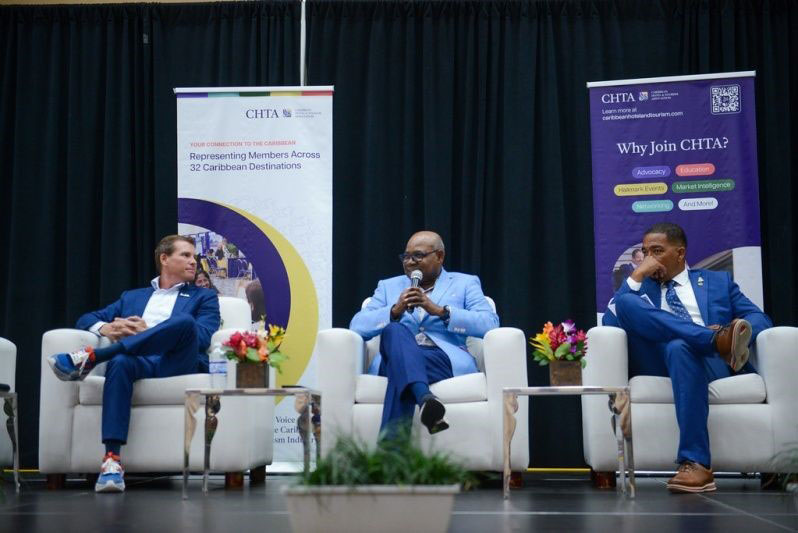(Trinidad Guardian) Jamaica’s Minister of Tourism, Edmund Bartlett has dispelled the notion by some that all tourism jobs are low-paying.
Bartlett made this point during a panel discussion titled Integrated Tourism Development of Caribbean Hotel and Tourist Association’s Travel Marketplace, which was held last month at Montego Bay Convention Centre, Jamaica.
He indicated that his ministry has put training programmes in place that will provide workers with the qualifications needed to command higher salaries.
“The purpose of enabling us to change the labour market arrangements in tourism is that it is regarded as a low-wage industry with itinerants. The workers have not had a sense of commitment to a professional path because they don’t see it as existing in tourism. But that’s the tourism of the past — and we in the Caribbean know this,” Bartlett outlined.
“We are no longer a tourism of seasonality—six months off and six months on. We are now 24/7 so we have to create and train people to serve, and to do well, and to add value every step of the way 24/7,” he added.
Speaking on the value the tourism product brings to a country, the minister said that while capitalism was the driving force behind economic prosperity, workers were key assets to growing the industry.
“Tourism is about people, and it is the people who are the driving force behind the energy of tourism, and therefore the number one concern of tourism must be the workers of the tourism industry,” he highlighted.
Bartlett emphasised that it was not the responsibility of either the public or private sector alone to ensure a good working environment in the tourism sector.
He said, “It’s a joint responsibility that we all must share in enabling the best labour environment to prevail, which will inure to high productivity, great performances, and most importantly, the excellence of service, which will be the hallmark of the experience that the visitor comes to our destination for.”
The minister pointed out that 60 per cent of the value of the visitor experience was service, and the environment must be provided for the people to grow and thrive.
Also giving his input on the panel was Sandals and Beaches Resorts executive chairman, Adam Stewart, who said the tourism industry in the region is sophisticated and complicated.
Stewart mentioned that “it is something that you cannot take a lot of chances with and it’s something that needs deep experience around it.”
Further, he stated that there was a need for cohesion and continued dialogue between regional public and private sector players to effectively address key issues.
“I think our problems are relatively straightforward to solve, none of it is rocket science, but we have to start in a position of understanding each other’s limitations: what are the government’s limitations, what can or cannot be done; what are the private sector’s limitations?” Stewart explained.
He said both sectors must be able to hold hands, put in the infrastructure that will develop tourism, and create wealth for economies and the people.
Minister of Tourism and Ports for the Cayman Islands and Chairman of the Caribbean Tourism Organisation (CTO), Kenneth Bryan, the third panelist spoke about the importance of technology such as artificial intelligence to integrated tourism development, stating that it was inevitable.
“It’s time for us to embrace it and try to figure out how to take advantage of it.”
He added that technology would allow for more efficiency in the future and the transfer of labour into other areas.









